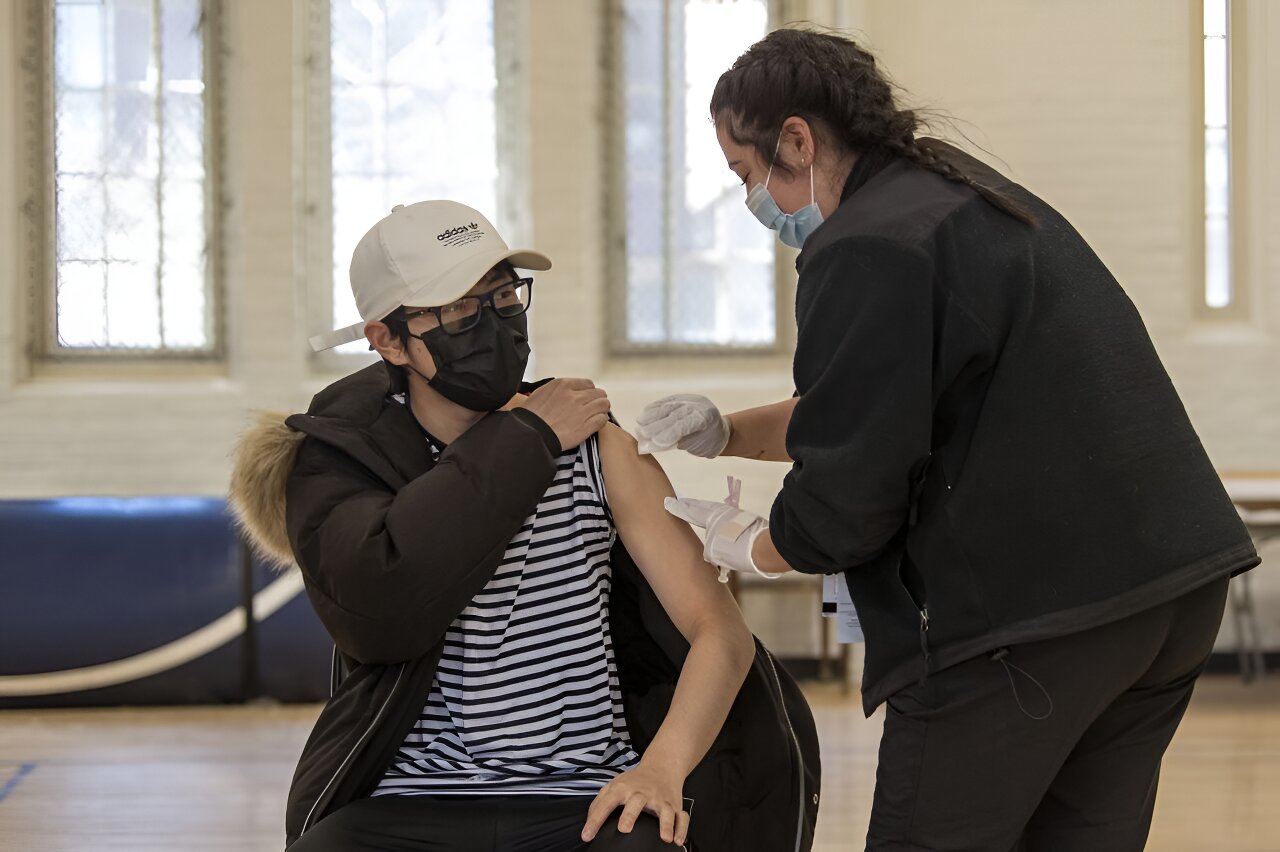
NEW STUDY PROVIDES INSIGHT TO WHY COVID VACCINES HIT SOME HARDER THAN OTHERS
When you got the SARS-CoV2 vaccine to protect against COVID-19, you may have experienced severe side effects. Or maybe you didn't.
Catherine Andersen, associate professor of nutritional sciences in the College of Agriculture, Health and Natural Resources (CAHNR), published a paper highlighting factors that may explain why some people perceived more side effects than others including stress, exercise, and use of hormonal birth control.
This study was published in the Journal of Agriculture and Food Research.
Concerns about potential side effects were a major barrier for some people to getting the vaccine at all, yet little research had been done on what could make someone more vulnerable to experiencing side effects.
One of Andersen's collaborators on the paper is Christa Palancia Esposito at Fairfield University. Esposito is a nurse practitioner and midwife who noticed in both her practice and in emerging literature that COVID-19 infection was impacting women's health differently from men's.
Andersen and Esposito had previously collaborated on a study looking at how women respond to certain dietary interventions based on whether they use hormonal birth control.
"We thought that was interesting because there was a lot of research coming out about sex-specific differences and COVID-19 illness severity but less about responsiveness and side effects to vaccines," Andersen says.
Given all of this, they decided to see if sex, hormonal birth control use, diet, body mass index (BMI), or exercise impacted someone's experience of post-vaccine symptoms.
"It just got us thinking more about personalized health and whether certain characteristics could be playing a role here," Andersen says.
For this pilot study, the researchers surveyed 82 people who received any of the three vaccines available in 2021. They found that stress, BMI, exercise, and use of hormonal birth control all played a role.
The researchers found a significant correlation between stress and one's perception of the intensity of the side effects from the vaccine.
"Whether stress influences psychological perception of side effects, or whether stress responses lead to biological changes that result in side effects and impact efficacy of SARS-CoV2 vaccines, as it has been shown to do with other vaccines, is worth studying," Andersen says.
While there were no sex-dependent differences in the experience of side effects, women did generally report higher levels of stress and less regular exercise than men in the study.
Some of the associations between individual characteristics and perceived vaccine side effects were dose-dependent for the Moderna and Pfizer vaccines, which had two initial doses. For example, people who exercise regularly reported experiencing a lower severity of side effects for their first dose than those who did not exercise regularly. But for the second dose, they experienced a greater severity of side effects.
"Exercise in itself, especially acutely, can be inflammatory and certainly can impact the immune system," Andersen says, with growing evidence that exercise impacts vaccine efficacy.
Women who were on hormonal birth control also had an increased experience of side effects, especially those using the birth control pill. People with a higher BMI also reported greater severity of side effects.
The researchers also looked at what kinds of supplements people took and what dietary patterns they followed. But, due to the small sample size, they were not able to find any significant associations between these characteristics and perceived vaccine side effects.
Andersen says she will use data from this study to support future work in her lab which focuses on the connections between diet and lifestyle factors, metabolic health, and immune function.
"My lab will be able to immediately take these factors and use the knowledge we gained to better understand individualized responses to lifestyle and dietary interventions that are aimed at achieving specific immune outcomes," Andersen says.
As more data from SARS-CoV2 vaccinations become available, this study will provide a foundation for more work looking at these and other factors to improve vaccine delivery and reduce side effects through an individualized approach to health.
"The long-term goal is to make vaccines more effective and at the same time minimize side effects or adverse responses that may influence acceptance of potentially lifesaving, preventative health measures."
More information: Christa Palancia Esposito et al, Evaluating perceived side effects of SARS-CoV2 mRNA vaccines by lifestyle factors and nutritional status: Perspectives from a pilot study, Journal of Agriculture and Food Research (2024). DOI: 10.1016/j.jafr.2024.101201
Provided by University of Connecticut
This story was originally published on Medical Xpress. Subscribe to our newsletter for the latest sci-tech news updates. 2024-09-04T19:17:17Z dg43tfdfdgfd